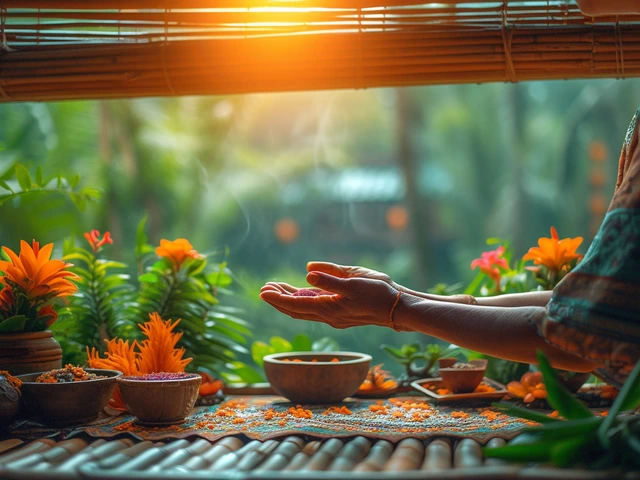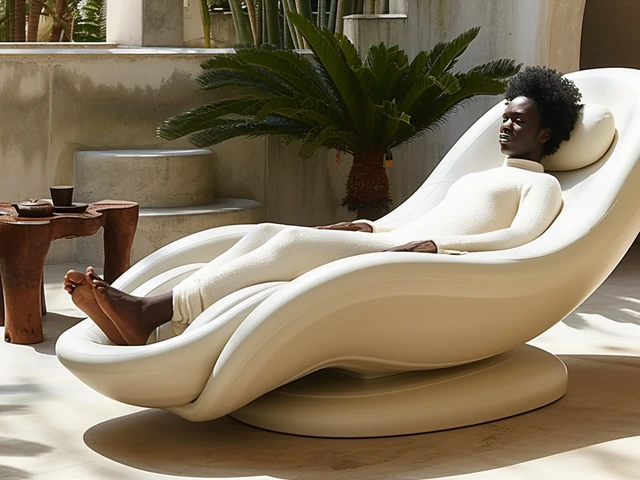The Role of Shiatsu in Managing Anxiety and Depression

Understanding Shiatsu
Anyone who knows me can attest to my love for holistic therapies, and today, I want to talk about Shiatsu. To put it simply, Shiatsu is a form of Japanese bodywork based on the principles of Traditional Chinese Medicine. It's generally performed using the thumbs, fingers, and palms, stimulating certain pressure points to correct energy imbalances in the body.
The practice is predicated upon the idea that our mind, body, and spirit are interconnected. If you think about it, when your body feels good, your mood is likely to follow. Conversely, when our bodies are in discomfort, poor health, it often affects our mental state too, right? Shiatsu makes use of this synergistic relationship between body and mind to promote overall well-being, and this includes the reduction of anxiety and depression symptoms.
Shiatsu and the Human Energy Field
"Qi" or "Ki" in the vernacular of Chinese and Japanese Medicine is often associated with what we call life force or energy flow. The idea behind it is that our bodies are comprised not only of physical structures, bones, muscles but an energetic system as well. Modern science has gifted us with various imaging techniques to glance at the physical aspects, yet the force that animates us stays hidden.
In Shiatsu, it's believed that this energetic system can be manipulated by the practitioner, channeling their energy through their hands into the client's body, to restore balance. An analogy I love to use is considering our bodies as gardens—the health of the plants (our organs) depends on the quality and path of the irrigation system (our energy flow). When this system is balanced and flowing smoothly, the garden thrives.
Energy Imbalances and Emotional Health
So, how does Shiatsu tie into emotional health like anxiety and depression? Well, as mentioned earlier, the underlying principle of Shiatsu is that everything is interconnected. If you're harbouring emotional issues, it's quite likely that it's going to manifest in your physical body and vice versa.
I'm sure you've experienced tensions building up in your body during stressful periods. Hunching over a computer for too long, anyone? Well, according to Shiatsu theory, it's not just muscular tension you're experiencing—these areas also correspond to energy blockages or imbalances in our systems. Such imbalances can lead to feelings of anxiety, sadness, or a general sense of unease, reinforcing a vicious cycle of emotional and physical discomfort.
The Impact of Shiatsu on Anxiety and Depression
Not to scare you off with such a bleak picture! Luckily, this is where Shiatsu comes in to save the day. It works by relieving these blockages by correcting imbalances in the energy flow—like a plumber for your energy streams. The modality aids to cleanse, energize, and restore the fluidity of your life force, contributing to an overall sense of calm and well-being.
One must note that although the physical stimulation depending on the practitioner's technique may feel similar to a massage, the core intention of each technique is vastly different. The key lies in the connection with the life energy or Qi, and the intimate knowledge of its pathways, the meridians in the body.
My Personal Encounter with Shiatsu
Now, you probably wonder if I have experienced this myself? Well, back when I was living in Sydney, I had a regular Shiatsu therapist (Jeff—I miss you!). Dealing with a stressful corporate job, I was grappling with severe anxiety and had read about the potential anxiety relief Shiatsu could provide. I went to Jeff in hopes of addressing my debilitating anxiety—and boy did it quite literally change my life!
Each session would leave me with an overwhelming sense of tranquility and clear-headedness—an effect that would linger for days. Over time, it helped me manage my anxiety levels, allowing me to change jobs and move to a slower-paced lifestyle in Perth. I still get regular Shiatsu treatments, and I credit it significantly for my emotional well-being.
Do Research, Find a Practitioner
If you are feeling inspired and interested in trying out Shiatsu, I encourage you to do some research first. Shiatsu involves a considerable physical encounter and hence, it's best to find a practitioner you can trust and feel comfortable with. Like with every other form of therapeutic engagement, rapport and trust in the practitioner significantly contributes to the effectiveness of the therapy.
Additionally, while Shiatsu can be a powerful tool in managing anxiety and depression, it is not advisable to see it as an exclusive solution for severe psychological conditions. Professional mental health guidance should always be first and foremost when dealing with serious emotional and psychological difficulties.
What to Expect in a Shiatsu Session
If you've made it this far and are wondering what exactly happens during a Shiatsu session, let's dive right in. Typically, you would start with an intake chat—kind of like a first date for you and the practitioner. They would ask about your current physical and emotional health, as well as your reasons for seeking the treatment.
Shiatsu sessions are typically conducted on a mat on the floor although some practitioners may use a low table. You'll remain fully clothed during the session. The practitioner will then apply pressure using his or her fingers, hands, elbows, knees—whatever suits the moment—along the body, targeting particular energy meridians to balance your Qi or Ki.
Going Beyond Shiatsu
To round this off, let's acknowledge that Shiatsu is only one part of the picture when managing anxiety and depression. It should be complemented with other lifestyle changes and self-care measures. Physical activity, a healthy diet, sufficient sleep, and positive social connections all contribute significantly towards emotional well-being.
So, while Shiatsu can contribute significantly in the battle against depression and anxiety, it excels as part of a well-rounded approach to emotional health. The magic lies in recognizing the mind-body connection and taking steps to nourish both. Who's up for a Shiatsu session? I know I am!




